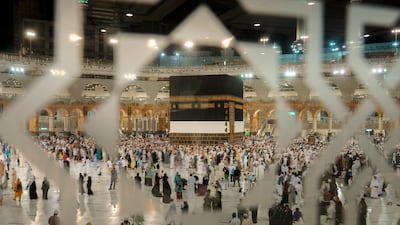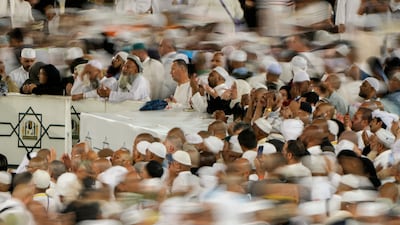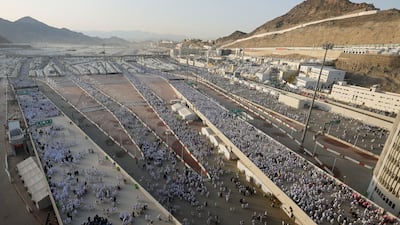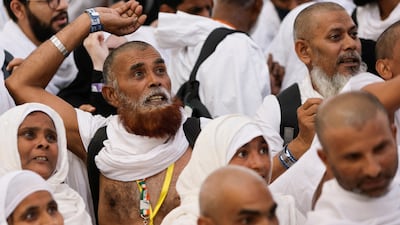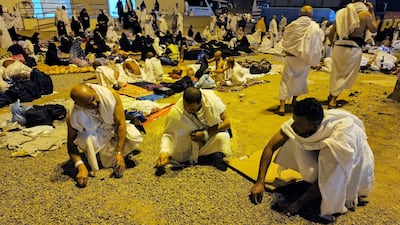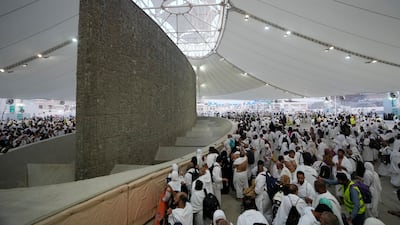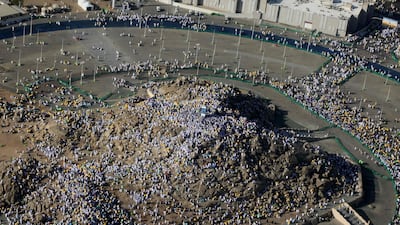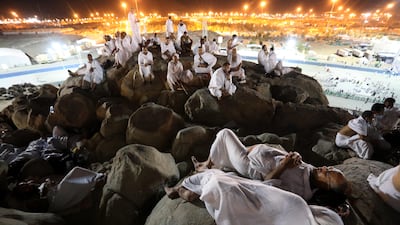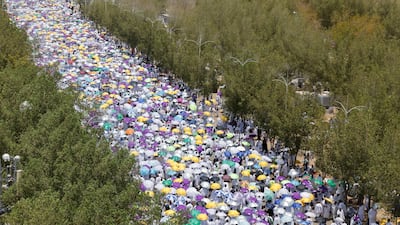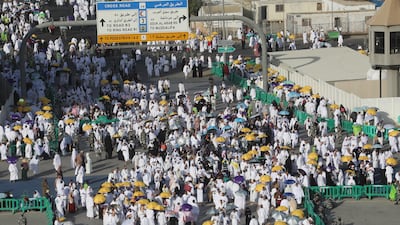Members of India's Muslim community have welcomed the government’s decision to scrap a “VIP quota” for Hajj, saying this will help open up spots for more pilgrims.
Hajj is one of the five pillars of Islam that every able-bodied Muslims must perform at least once in their life, if they have the means. The pilgrimage to Makkah has historically been one of the world's largest religious gatherings.
About 500 seats were previously allocated by India's Hajj Committee to people in top constitutional posts each Hajj season, including the president, prime minister and ministers.
The Hajj Committee of India itself had a quota of 200 seats.
Indian Federal Minority Affairs Minister Smriti Irani on Wednesday said that the government had decided to scrap the discretionary quota in keeping with Prime Minister Narendra Modi’s “resolve to end VIP culture” in the country.
“VIP culture was put in place with respect to Hajj during the [United Progressive Alliance] rule, under which there was a special quota allocated to the Ministry of Minority Affairs, Hajj Committee and all those in top constitutional posts,” Ms Irani said.
She said that the government had formulated a new Hajj policy that would be announced soon.
Indian Muslims said scrapping the quota would give opportunities to more people to obtain seats.
Noil Khan, a school administrator described the announcement as "wonderful news".
"We just returned from Umrah and, although we got the spots easily, we can’t say the same for Hajj," he said.
"This also made no sense to give a special treatment to VIPs.”.
Syed Ahmed, a Delhi resident said it was a welcome step.
“Over the years, the population of Indian Muslims has grown, and they have become stronger financially, which has created greater demand for Hajj spots,” he told The National.
“Although the numbers are not huge it will still open up some spots for common people which is a welcome step.”
India has been plagued by a VIP culture for decades, which allowed certain people unbridled privileges due to their political, social or financial status.
The country has more than 200 million Muslims and every year, at least 150,000 from the country embark on the pilgrimage to Saudi Arabia.
The Indian consulate in Jeddah on Monday said the governments of the two countries had signed an agreement that will enable more than 175,000 Indian Muslims to perform Hajj.
Each year, the Saudi government allocates country quotas to cap the number of pilgrims and provide them safe services.
Traditionally, these quotas allocated to India were distributed among the Ministry of Minority Affairs and the Hajj Committee of India, which holds 70 per cent of the total quota, while the remaining 30 per cent is given to private operators.
The committee used a draw system to select pilgrims.
VIP places were reduced from 5,000 to 500 in 2011 after the country’s top court called it a “bad religious practice”.
